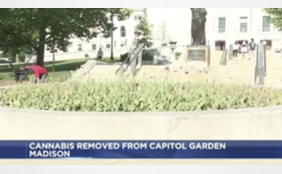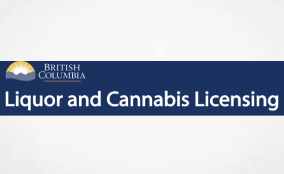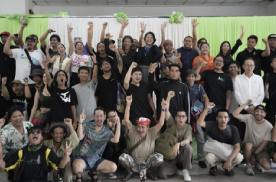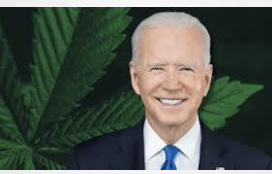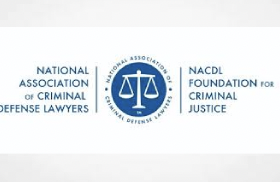While 2016 saw the overwhelming passage of Amendment 2 in Florida, the new Medical Marijuana law left in detrimental language and regulations requiring a 90-day waiting period and a 45-day cannabis order limit.
Patients did not go away quietly appeased, as the state had anticipated.
The Medics Part 2 discussed how knowledge compels most to participate more actively in all levels of government medical marijuana rule-making: local, state, and federal. These laws do affect all of us
Medical Marijuana and its subsequent regulation, laws, and standardization affects U.S. cannabis users and non-users alike.
The public recently bombarded the FDA in June 2019 with so many questions, comments, and suggestions concerning CBD in the United States, with:
“individuals and organizations filed more than 4,400 submissions, which will be used to inform FDA’s rulemaking process for cannabidiol products. The comment period opened in April and it was followed by a first-ever FDA public hearing on the cannabinoid that involved testimony from numerous industry stakeholders and reform advocates.”
Then on Wednesday, July 10, 2019, the Senate Judiciary Subcommittee held its first-ever hearing on federally de-scheduling Marijuana. Watch the Senate hearing on Marijuana here.
Yes, people are interested, and so far in 2019, lawmakers on every level of government are paying close attention.
Back in Florida’s 2016 version of Amendment 2, the original extended delay a Florida patient had to endure before actually receiving medication was fundamentally unacceptable. This 90-day wait caused immediate backlash from all facets of the industry because of its restrictive and prohibitive nature.
It was not until the passage of Senate Bill 8-A in 2017 that patients and physicians finally saw the disappearance of the 90-day waiting period. Download the Summary of Medical Marijuana Legislation (Senate Bill 8-A).
For more in-depth reading, here’s an insightful look at the revamped cannabis law revisions: Florida Senate Bill 8-A’s Effect on Physicians’ Medical Marijuana Practices – Jones Health Law.
Current Florida law requires physicians to reevaluate existing qualified patients at least once before issuing a new physician orders. That’s one physician visit approximately every 7-months or 30-week period, as required by law in order for a qualified patient’s registry user certification to remain actively valid.
One visit per year and immediate access to cannabis medication was much more palatable to patients than the initial 90-day waiting period.
Modifying an existing certification for marijuana in a form for smoking to the updated format (by canceling the prior certification and re-entering it in the updated format) does not change the 30-week reevaluation patient visit requirement.
When updating a patient’s certification, the physician must be sure to maintain the original certification details: forms of marijuana, routes of administration, and certification end date.
In 2018, Florida saw the gubernatorial victory of Ron DeSantis’ largely based on an ambitious platform including marijuana legalization.
In March of 2019, Florida finally got the release of access to smokable flower with help from DeSantis, but the state Office of Medical Marijuana Use Registry was not quite ready for the change.
Physicians quickly consulted with patients throughout the Spring 2019, updating Registry orders immediately to include smokable as an approved delivery route in order to avoid interruption of care. However, the state’s OMMU system lagged weeks behind:
“SB 182 repeals the smoking ban the 2017 amendment to the Compassionate Medical Cannabis Act of 2014, that did not permit the possession, use or administration of medical cannabis by means of smoking. Medical Marijuana in a smokeable form has now been approved.”
Florida MMTC Certified Physician and Clinic Physician Director, Dr. Michelle Beasley confirmed that the OMMU finally caught up in June, issuing mandatory new registry guidelines for smokable flower in its OMMU Weekly Update.
Dr. Beasley treats the largest number of medical marijuana patients in Northwest Florida. With the help of her trusted MMTC team, she successfully updated over 1400 patient records to include the smokable delivery route by the state deadline.
The June 28, 2019 weekly update outlines the tedious task of redoing all existing Registry recommendations for appropriate patients under their care to include smokable delivery route.
Since the new smokable rules went into effect on Friday July 16, 2019, only minimal interruptions have been reported within the state’s nearly 300,000 active, qualified patients. Overall, addition of the smokable delivery route is a big win for the Florida Department of Health, patients, and physicians.
To my knowledge, Trulieve is the only one of our vertically integrated dispensaries in the State of Florida who notified subscribed patients directly via an early June 26, 2019 cautionary email, explaining the upcoming change to smokable as a route of delivery.
Based on the rising number of patient delays since the July deadline, many Florida patients remain in limbo, unable to fill their smokable marijuana orders. As recently as July 20, 2019, many patients still lack their physician’s addition of smokable as an approved delivery route.
However, due diligence has been done concerning patient notification of the smokable system change, much to the credit of the state of Florida, MMTC FL dispensaries, and many dedicated CME physicians working overtime.
Trulieve emailed patients a second follow-up note on July 10, 2019 explaining to patients how exactly to check their existing OMMU physician order. This action further ensured that patients had the option to seamlessly obtain smokable flower as part of their cannabis product order, if that is their desired choice of delivery route.
Surterra Wellness followed the initial OMMU statewide public announcement about this mandated smokable flower rule with their own July 2, 2019 blog post: Florida’s New Registry Change Includes Smokable Flower, in which they outline the detailed changes to the official state Registry.
This addition of smokable flower as a patient delivery route is not an automatic change. If they are not already updated in the OMMU state registry, patients must work together with their physicians to complete the required change immediately.
Each qualified patient, or the patient’s parent or legal guardian if they are a minor, must give written informed consent to their qualified ordering physician before being certified to receive any medical marijuana in a form for smoking.
That written informed consent must contain information regarding the risks specifically associated with smoking marijuana.
Physicians must discuss the negative health effects of smoking marijuana with the qualified patient, subsequently obtaining an acknowledgement from the patient that the qualified physician has sufficiently explained the content of the informed consent.
The Board of Medicine (for M.D. licensed physicians) and Board of Osteopathic Medicine’s (for D.O. licensed physicians) new informed consent form is available here for review.
The “Smoking as an Appropriate Route” form does not need to be submitted at every certification. The Board of Medicine and Board of Osteopathic Medicine form for determining smoking is an appropriate route of administration must only be submitted once per physician per patient.
The offical Florida Department of Health smokable form can be found online here.
In addition, interested parties can download The Health Effects of Cannabis and Cannabinoids: The Current State of Evidence and Recommendations for Research.
To find a qualified physician to order medical marijuana in a form for smoking, patients can use the medical marijuana qualified physician search tool. The OMMU search locates a qualified physician by location and specialty.
For the addition of the smokable delivery route, physicians must provide the following required documentation to the qualified patient in person, and subsequently, submit to the applicable Board when certifying each patient for smoking medical marijuana:
- Written list of other medical cannabis delivery routes of administration, if any, certified by a qualified physician that a qualified patient has tried (oral, inhalation, topical), the length of time the patient used or is currently using such routes of administration, and lastly, the physician’s professional assessment of the effectiveness of those routes of administration in treating my qualifying condition.
- Research that documents the effectiveness of smoking as a route of administration to treat similar patients with the same qualifying condition as the qualified patient.
- A statement signed by my qualified physician documents their qualified physician’s opinion that the benefits of smoking marijuana for medical use outweigh the risks for the qualified patient.
This documentation required by the Board of Medicine and Board of Osteopathic Medicine smokable form DH-MQA-5027 can be found here.
Licensed Medical Marijuana Treatment Centers that are authorized to dispense medical marijuana in a form for smoking or other delivery route to qualified patients include these twelve companies called dispensaries.
View list of all licensed MMTCs and their dispensing locations or visit official individual business websites here:
- Trulieve
- Curaleaf
- Liberty Health Sciences
- VidaCann
- AltMed Florida (MüV)
- GrowHealthy
- GTI (Rise Dispensaries)
- 3 Boys
- Surterra Wellness
- Fluent (formerly Knox Medical)
- Harvest
- MedMen.
MARKET: Florida Medical Marijuana News- Green Growth to enter Florida market in $54M deal
Be sure to visit Medical Marijuana Treatment Clinics of Florida to access their educational resources to learn more about medical marijuana in general:
Armed with some basic cannabis knowledge, what’s next if Florida’s program is to adapt and grow its medical marijuana program?
Florida currently offers many cannabis delivery routes for patients to get cannabidiol (CBD) and tetrahydrocannabinol (THC) products delivered to the body’s endocannabinoid system; CBD and THC are the two main ingredients in marijuana.
Below is a list of Florida’s available delivery route and its associated cannabis products:
- Oral: Sublingual, Ingestible, Capsules, Tinctures, Syringes, Sprays
- Inhalation: Vape Cartridges, Nebulizer Nasal Mist, Vaporizers, Concentrates
- Topical: Lotion, Sunscreen, Transdermal Patches
- Rectal: Suppositories
- Smokable: Whole Flower, Pre-Rolls, Shatter, Crumble, Rosin
Noticeably absent from the current state list are Edibles.
Although popular and available in many other legal medical marijuana states, Edible products have yet to see the light of day in the Sunshine State, although edibles are technically legalized.
The Department of Agriculture lays out Florida’s Medical Marijuana Treatment Center Edibles statutes Pursuant to Section 381.986, Florida Statutes (F.S.), instructing:
“the Florida Department of Agriculture and Consumer Services (FDACS) is authorized to issue food permits to medical marijuana treatment centers to manufacture and produce edibles.”
Edibles are further defined by Florida law as “commercially produced food items made with marijuana oil, but no other form of marijuana, that are produced and dispensed by a medical marijuana treatment center,” on the Department of Agriculture’s official state website.
Contact Heather
Heather Allman
B.A.Ed., M.A, University of West Florida
Non-Profit Founder: Allman Education, medicalcannabis101.org
Location: Pensacola, Florida, USA
Phone: 1-850-287-2509
Web: http://medicalcannabis101.org
Twitter and Instagram: @allmaneducation
Email: heatherallman@outlook.com or heather@medicalcannabis101.org
Linked In: http://linked.in/in/heatherjallman

